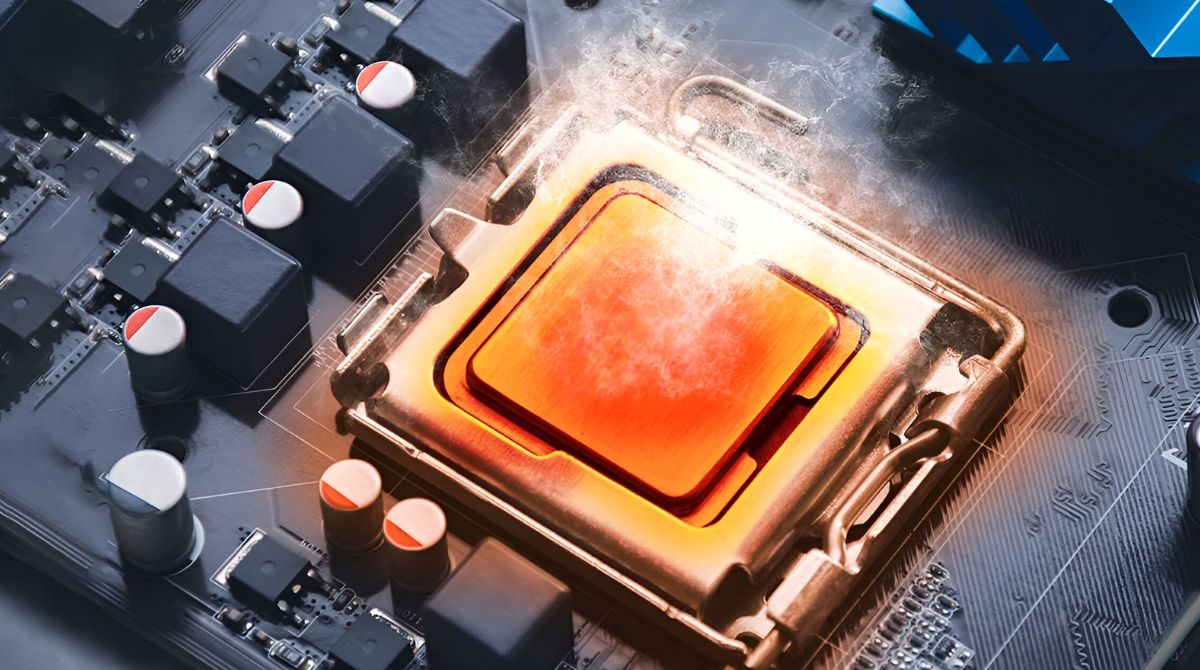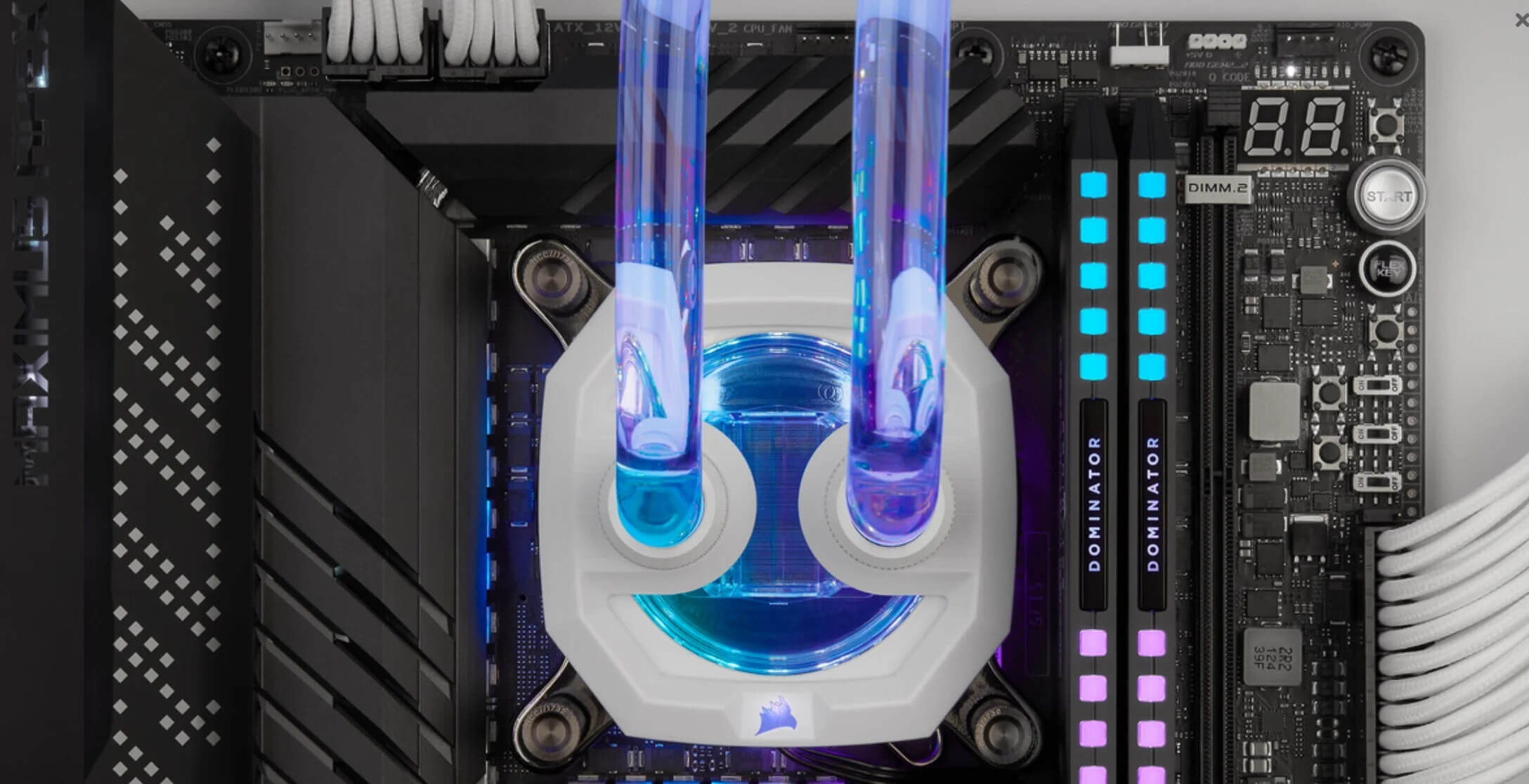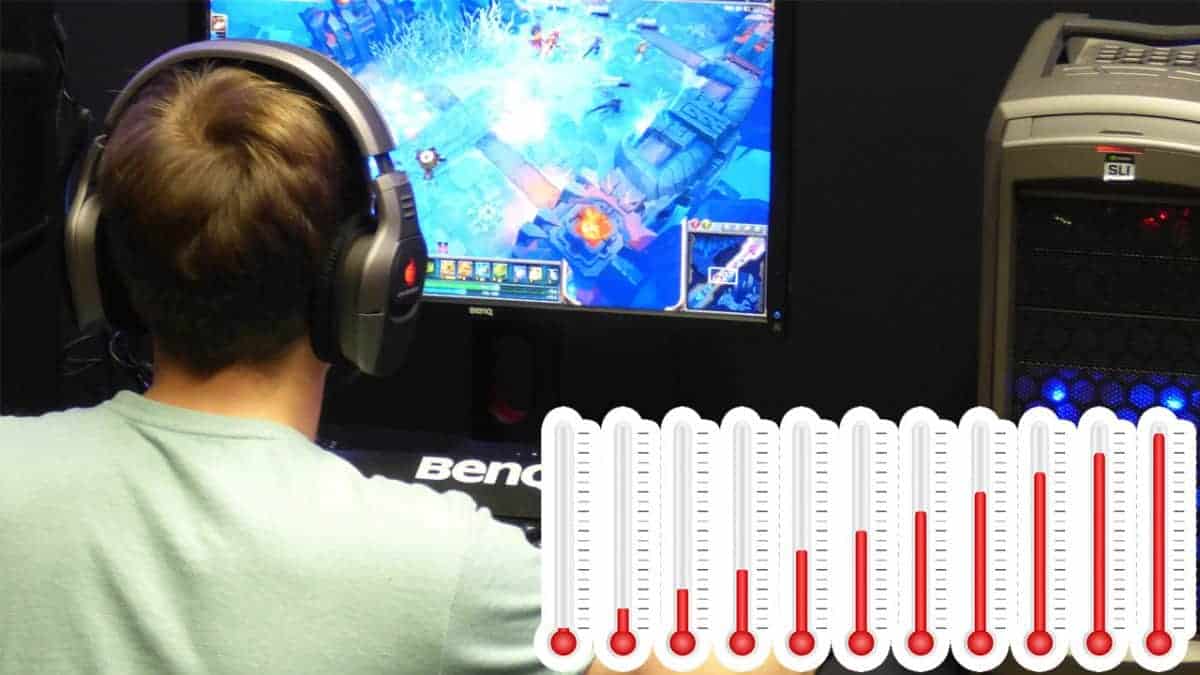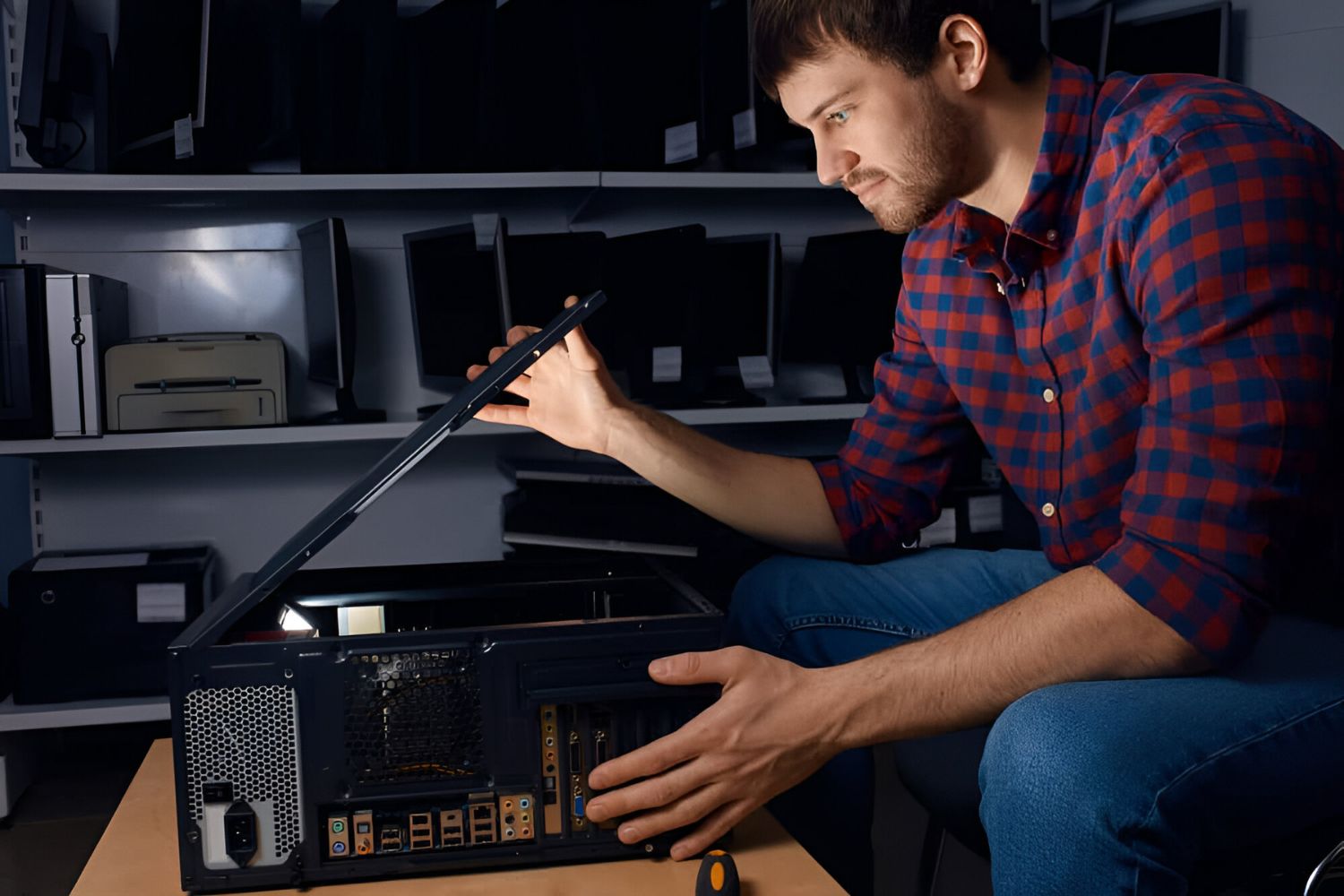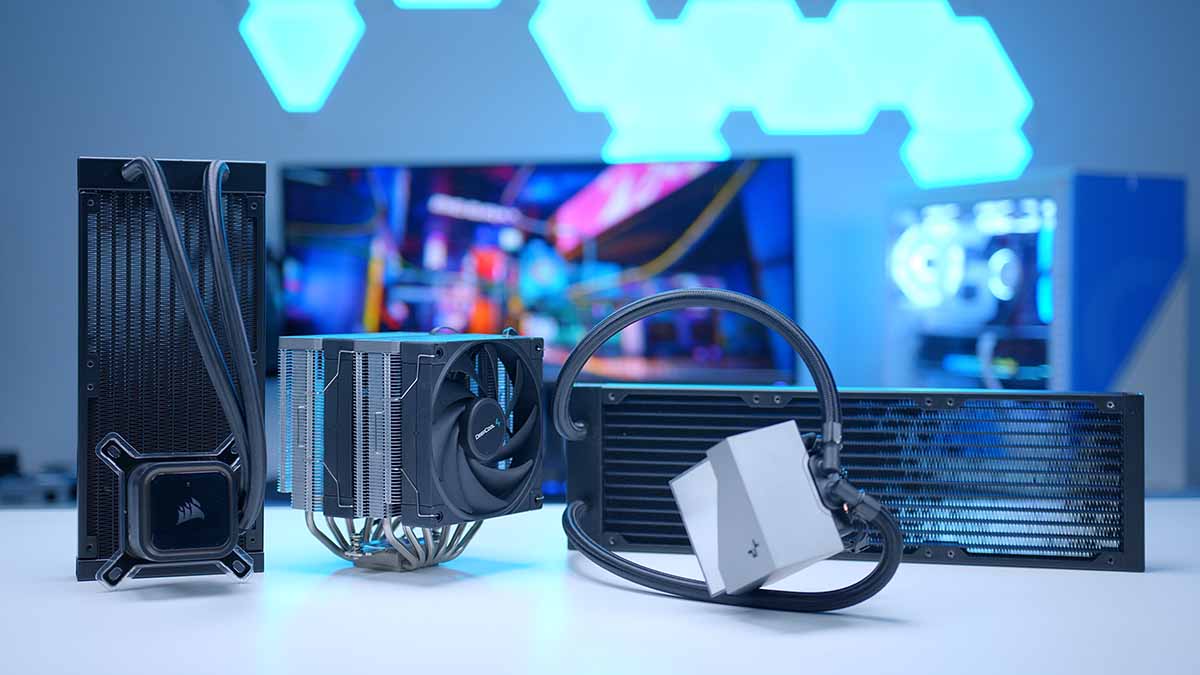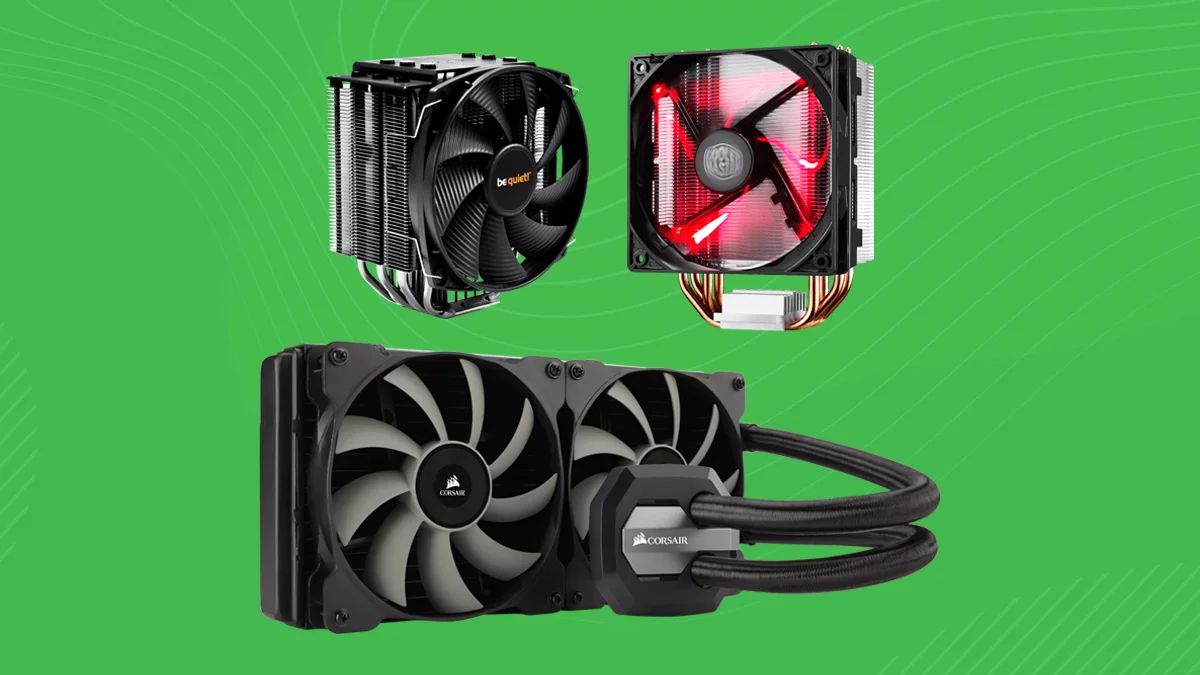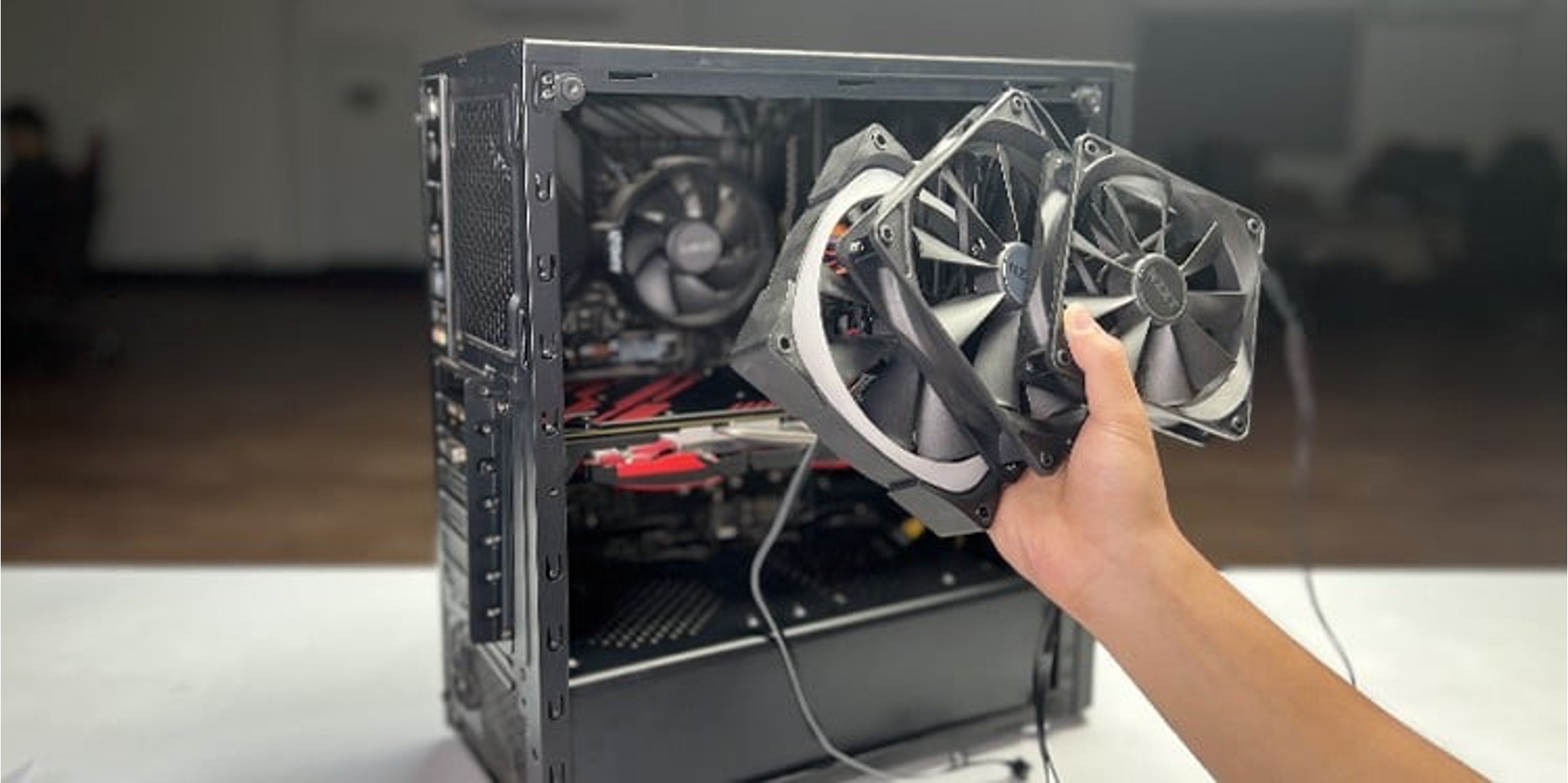Introduction
Welcome to the world of technology, where the performance of our beloved PCs relies on various components working together seamlessly. One such crucial element is the CPU (Central Processing Unit) – the brain of the computer that performs all the calculations and executes instructions. However, every brain needs a cooling mechanism, and for a CPU, this is where the CPU cooler comes into play.
A CPU cooler is an essential piece of hardware that keeps the CPU temperature within an optimal range to ensure smooth and reliable operation. It may seem like a small component compared to the powerful CPU, but its role in maintaining the CPU’s temperature cannot be understated. Without a CPU cooler, the CPU can quickly overheat, leading to a cascade of harmful effects on the overall performance and lifespan of the PC.
In this article, we will delve into the world of CPU coolers and explore what happens to a PC without this vital cooling mechanism. We will discuss the potential risks and consequences of not having a CPU cooler, including overheating, permanent damage, thermal throttling, system crashes, unstable performance, and reduced processing speed.
So, buckle up and prepare to navigate the turbulent waters of CPU cooling, as we uncover the significance of the CPU cooler and unveil the potential hazards that await your PC without it.
What is a CPU cooler?
A CPU cooler is a hardware component designed to regulate the temperature of the CPU by dissipating the heat generated during operation. It consists of a heatsink, which is a metallic structure with numerous fins to increase the surface area for heat dissipation, and a fan or fans that blow air across the heatsink to facilitate cooling.
The primary purpose of a CPU cooler is to prevent the CPU from overheating, which can be detrimental to its performance and longevity. As the CPU performs countless calculations per second, it generates a significant amount of heat. If this heat is not properly managed, it can lead to a rapid increase in temperature, causing the CPU to throttle its performance, or worse, sustain permanent damage.
CPU coolers are available in various types, including air coolers and liquid coolers. Air coolers are the most common and affordable option, consisting of a heatsink and fan(s). The heatsink absorbs the heat from the CPU, and the fan(s) help dissipate it by blowing cool air through the fins. On the other hand, liquid coolers, also known as all-in-one (AIO) coolers, utilize liquid cooling technology to transfer heat away from the CPU using a pump, radiator, and fans.
Moreover, some high-end CPU coolers feature additional features, such as heat pipes, which effectively transfer heat from the CPU to the heatsink, and RGB lighting for aesthetic appeal. Regardless of the type or features, the ultimate goal of a CPU cooler remains the same: to maintain the CPU temperature within safe limits to ensure optimal performance and prevent any long-term damage.
The role of the CPU cooler
The CPU cooler plays a crucial role in maintaining the temperature of the CPU, which directly impacts the overall performance and lifespan of a PC. Let’s take a closer look at the vital roles that a CPU cooler serves:
- Heat dissipation: As the CPU performs intensive tasks, it generates heat. The CPU cooler’s primary function is to absorb that heat from the CPU and dissipate it away from the system. The heatsink, with its numerous fins, provides a larger surface area for the heat to disperse, while the fan(s) blow air across the fins, enhancing the cooling process.
- Prevention of overheating: If the CPU temperature surpasses safe limits, it can lead to overheating. Excessive heat can damage the delicate internal components of the CPU, such as the transistor junctions and circuitry. The CPU cooler efficiently removes the heat, keeping the temperature in check and preventing the CPU from overheating, ensuring stable and reliable operation.
- Performance optimization: High temperatures can affect the performance of the CPU. When the CPU reaches its temperature threshold, it may automatically reduce its clock speed or throttle down to lower its power consumption and heat output. This process, known as thermal throttling, helps prevent overheating, but it also hampers the CPU’s performance. With an effective CPU cooler, the temperature remains within acceptable limits, allowing the CPU to operate at its full potential, resulting in better performance.
- Protection against hardware failure: Continuous exposure to excessive heat without proper cooling can lead to the deterioration of the CPU’s internal components. Over time, this can cause the CPU to fail prematurely. By keeping the temperature in check, a CPU cooler helps extend the lifespan of the CPU and other associated components, reducing the risk of unexpected hardware failure.
- A quiet computing experience: Many CPU coolers are designed to operate quietly. They utilize technologies such as optimized fan blades, rubber dampeners, and intelligent fan control to minimize noise levels. This allows users to enjoy a more peaceful computing experience without the constant whirring of loud fans.
Ultimately, the role of the CPU cooler is to ensure the proper functioning of the CPU by regulating its temperature. It not only safeguards the CPU from damage but also maximizes its performance and enhances the overall longevity of the PC.
Overheating without a CPU cooler
Without a CPU cooler, the temperature of the CPU can skyrocket rapidly, leading to overheating. Let’s explore the consequences of allowing the CPU to overheat:
- Damage to internal components: Overheating can cause irreversible damage to the CPU and other critical components of the PC. Excessive heat can lead to the degradation of transistor junctions and circuitry, compromising their functionality. Over time, this can result in system instability, crashes, and, in severe cases, permanent hardware failure.
- Thermal throttling: To prevent overheating, modern CPUs have built-in thermal protection mechanisms. When the temperature reaches a certain threshold, the CPU will automatically throttle its performance by reducing clock speeds. While this action helps prevent further temperature rise, it comes at the cost of reduced computing power. Your PC may become sluggish and struggle to handle demanding tasks, adversely affecting your productivity and user experience.
- System crashes and instability: Overheating can cause unexpected system crashes and instability. When the CPU temperature exceeds safe limits, the PC might shut down abruptly to protect the components from damage. Frequent crashes can lead to data loss, interrupt ongoing work, and cause frustration. Furthermore, an overheated CPU can also cause instability in other system components, leading to intermittent issues like freezes, blue screens of death, or applications behaving erratically.
- Reduced performance and slow processing: Excessive heat affects the performance of the CPU, as mentioned earlier. Thermal throttling reduces the clock speed to minimize heat output, resulting in reduced processing power. Tasks that were once smooth and speedy may take much longer to complete. This slowdown can be especially evident during resource-intensive activities, such as gaming, video editing, or running complex software.
- Shortened lifespan of the CPU: Prolonged exposure to high temperatures can significantly shorten the lifespan of the CPU. The heat can cause various electronic components to degrade faster, compromising their reliability and stability. As a result, you may experience more frequent failures, system errors, and unexpected shutdowns as the CPU reaches the end of its life prematurely.
Therefore, without a CPU cooler to maintain a safe operating temperature, your PC is at risk of experiencing these detrimental consequences. Investing in a reliable CPU cooler is essential to preserve the longevity and performance of your computer.
Risk of permanent damage
Operating a PC without a CPU cooler poses a significant risk of permanent damage to the CPU and other vital components. Let’s explore the potential consequences:
- CPU degradation: The CPU is a delicate piece of hardware with numerous tiny transistors that perform billions of calculations per second. When exposed to high temperatures without proper cooling, these transistors can suffer thermal stress, leading to accelerated degradation. Over time, this can result in a loss of performance and stability, ultimately rendering the CPU unusable.
- Damage to motherboard components: Excessive heat generated by an uncooled CPU can affect not only the processor itself but also other vital components on the motherboard. Components such as capacitors, resistors, and voltage regulators can be highly sensitive to heat and may become compromised under prolonged exposure. This can lead to system instability, erratic behavior, and even permanent damage to the motherboard.
- Hard drive failure: Overheating can also impact the functionality and lifespan of your hard drive. Hard drives rely on precise mechanical movements and magnetically stored data. High temperatures can cause the lubrication in the drive to break down, leading to increased friction and wear on the mechanical components. In extreme cases, this can result in data loss and the need for a costly replacement.
- GPU (Graphics Processing Unit) damage: Modern PCs often feature a dedicated GPU for graphics-intensive tasks. A CPU that runs hot can raise the ambient temperature inside the case, placing an additional thermal load on the GPU. This increased heat can cause the GPU to malfunction, leading to artifacts, screen flickering, and potentially permanent damage to the graphics card.
- Loss of warranty: Using a PC without a CPU cooler typically violates the warranty terms of both the CPU and the motherboard. Manufacturers expect users to employ adequate cooling measures to avoid damage and preserve the lifespan of their products. Operating a PC without a CPU cooler can void the warranty, leaving you responsible for any repairs or replacements.
In summary, the risk of permanent damage to the CPU, motherboard, hard drive, and GPU is substantial when a PC operates without a CPU cooler. It is crucial to prioritize the cooling needs of your system to ensure its longevity, reliability, and to protect your investment in high-performance components.
Thermal throttling
Thermal throttling is a protective mechanism implemented in modern CPUs to prevent overheating and potential damage. When a CPU reaches a certain temperature threshold, it automatically reduces its clock speed and voltage to decrease heat generation, thereby preventing the temperature from rising further. While thermal throttling is essential for preserving the CPU’s integrity, it has some significant implications:
- Reduced performance: When a CPU enters thermal throttling mode, it operates at a lower clock speed than its maximum capability. This reduction in clock speed directly translates to a decrease in overall performance. Tasks that once ran smoothly may now take longer to complete, especially those that are computationally intensive, such as rendering complex graphics or performing demanding calculations.
- Impaired multitasking: Thermal throttling can severely impact multitasking. When the CPU is running at a reduced clock speed, it struggles to handle multiple tasks simultaneously. This can lead to delays, lag, and unresponsive behavior when attempting to switch between applications or running several resource-intensive programs concurrently.
- Inconsistent performance: Thermal throttling can cause performance fluctuations, leading to inconsistent system behavior. The CPU’s clock speed may constantly fluctuate as the temperature fluctuates, resulting in an uneven user experience. This can be particularly frustrating for users who rely on consistent performance for tasks such as gaming, video editing, or running software that requires high processing power.
- Longer processing times: With thermal throttling in effect, tasks that require significant computational power will take longer to complete. CPU-intensive operations such as file compression, video encoding, or 3D rendering will experience increased processing times due to the reduced clock speed. This can lead to extended wait times and reduced productivity for users engaged in time-sensitive work or projects.
- Increased power consumption: When a CPU is thermally throttling, it compensates for reduced clock speed by running at a higher voltage. This increased voltage can result in higher power consumption, leading to increased heat generation and potentially exacerbating the cooling problem. The combination of reduced performance and increased power consumption can also impact your electricity bills and overall energy efficiency.
In essence, thermal throttling protects the CPU from overheating, but it comes at the cost of reduced performance, inconsistent behavior, and longer processing times. To avoid the drawbacks of thermal throttling and ensure optimal performance, it is essential to maintain appropriate temperature levels by utilizing an efficient CPU cooler.
Crashes and system instability
An uncooled CPU can lead to system crashes and instability, causing frustration and interruptions in your computing experience. Let’s explore the impact of operating a PC without a CPU cooler:
- Sudden shutdowns: When a CPU runs hot without proper cooling, it can reach critical temperatures that trigger automatic shutdowns. This is a protective mechanism to prevent damage to the CPU and other components. However, these abrupt shutdowns can result in loss of unsaved work, interrupted tasks, and potential data corruption.
- Blue screens of death (BSOD): High CPU temperatures can cause system instability, leading to frequent occurrences of the infamous Blue Screen of Death. The BSOD is an error screen that appears when the operating system encounters a critical error. Overheating can trigger such errors, causing the system to crash and requiring a restart, disrupting your workflow.
- Error messages and system freezes: Without proper cooling, the CPU’s performance can be compromised, leading to erratic system behavior. Crashes, freezes, and error messages may become a regular occurrence, interrupting your work or causing delays in completing essential tasks.
- Intermittent hardware malfunctions: An overheated CPU can cause intermittent hardware malfunctions throughout the system. Devices connected to the PC, such as printers, scanners, or external storage devices, may not work correctly or may experience sporadic disconnections. This can lead to further frustration and difficulties in completing tasks efficiently.
- Software instability: Heat-related issues can also impact the software running on your PC. High CPU temperatures can cause the operating system and applications to behave erratically, leading to crashes, application errors, or even system-wide slowdowns. This instability can hinder your ability to work, browse the web, or enjoy multimedia without interruptions.
In summary, operating a PC without a CPU cooler can result in crashes, system freezes, error messages, and hardware malfunctions. These issues can disrupt your workflow, cause data loss, and create a frustrating user experience. Investing in a reliable CPU cooler helps maintain stability and ensures smoother operation of your system, allowing you to work and play without the fear of unexpected crashes or system failures.
Reduced performance and slow processing
Operating a PC without a CPU cooler can have a significant impact on performance, leading to slow processing and diminished overall efficiency. Let’s take a closer look at the implications of running a PC without proper CPU cooling:
- Thermal throttling: As the CPU heats up, it may enter a state known as thermal throttling, where it reduces its clock speed to lower its heat output. While this is a protective measure to prevent overheating, it can significantly impact performance. The reduced clock speed limits the CPU’s computational power, resulting in slower processing times and diminished performance during resource-intensive tasks.
- Increased processing time: Without adequate cooling, the CPU’s operating temperature can soar, causing it to struggle when executing tasks. Complex calculations, such as rendering videos or compiling code, can take significantly longer to complete. This increased processing time can lead to delays in meeting deadlines and hinder productivity.
- Stuttering and lag: High CPU temperatures can cause the system to experience stuttering and lag, particularly during demanding tasks like gaming or multimedia editing. The CPU’s performance limitations can result in choppy frame rates, input delay, and overall unresponsiveness, negatively impacting your gaming experience or hindering smooth multimedia playback.
- Inefficient multitasking: Inadequate cooling prevents the CPU from efficiently managing multiple tasks simultaneously, causing slowdowns when juggling various applications. Opening multiple programs or browser tabs can lead to sluggish performance and delayed responses, impairing your ability to multitask effectively.
- Longer load times: Without a CPU cooler, demanding applications and software can take longer to load. The CPU’s struggle to maintain optimal performance due to excessive heat can lead to extended load times for programs, adding frustrating delays and impeding workflow productivity.
- Compromised gaming experience: Gamers rely on high-performance CPUs to produce smooth gameplay and responsive controls. Operating a PC without a CPU cooler can lead to reduced frame rates, poor graphics rendering, and increased input lag, resulting in a compromised gaming experience with subpar performance.
In essence, a lack of proper CPU cooling results in reduced performance, slower processing times, and suboptimal multitasking abilities. To enjoy the full potential of your PC and maximize productivity, investing in a reliable CPU cooler is essential to ensure efficient and swift processing of tasks.
Conclusion
The CPU cooler is an essential component for any PC, playing a critical role in maintaining the temperature of the CPU within safe limits. Operating a PC without a CPU cooler can have severe consequences, ranging from overheating and permanent damage to reduced performance and system instability.
By neglecting to install a CPU cooler, you put your PC at risk of overheating, which can lead to permanent damage to the CPU and other critical components. Thermal throttling may kick in to protect the system, but this results in reduced performance, slower processing, and inefficient multitasking.
Furthermore, the lack of a CPU cooler can cause frequent crashes, system freezes, and intermittent hardware malfunctions. It can also compromise the software running on your PC, resulting in erratic behavior and instability.
To ensure the longevity and optimal performance of your PC, investing in a reliable CPU cooler is crucial. Whether you opt for an air cooler or a liquid cooler, it is essential to choose a solution that matches the thermal demands of your CPU and provides efficient heat dissipation.
A well-cooled CPU not only prevents damage and extends the lifespan of your components but also allows for consistent performance, smoother multitasking, and faster processing. Whether you are a gamer, a creative professional, or a casual user, a functioning CPU cooler is vital for a seamless and enjoyable computing experience.
So, prioritize the cooling needs of your PC and ensure that your CPU is always protected by a reliable CPU cooler – your PC will thank you with improved performance, increased stability, and extended longevity.







